|
Stroke A stroke is a sudden interruption of the blood supply to the brain. Every stroke is different and the effects depend on the area of the brain which is injured. A stroke on the left side of the brain will affect the right side of the body and vice-versa. Each side specialises in different functions and one or more of those functions may be mildly or severely affected.
This is a simple guide, more information and help on speech and communication is available from the local hospital speech language therapist and the Stroke Foundation. Advice on how to survive a stroke - from the Hornby Stoke Group Participants – May 2012 A stroke doesn’t need to be a life sentence.
If you need help following a stroke,
our friendly physio, speech language, music and occupational therapists and dietitians can help. Just contact us at Therapy Professionals Ltd Phone: 03 377 5280 Email: [email protected] Website: therapyprofessionals.co.nz Speech Language Therapy A Speech Language Therapist is trained in the area of swallowing and in the development of communication speech, and language. The reason they are trained in both these areas is many of the same muscles, nerves and body parts are used in both communication and swallowing.  Communication is a complex activity that involves us understanding and being understood and includes:
- gestures/sign language - body language - symbols (writing, drawing picture) - technology
- recognising non verbal clues - taking turns, eye contact, personal space - staying on topic - adapting communication for different situations and audiences.  Swallowing or dysphagia is a common consequence of many health conditions, head and neck surgery and ageing, affecting over 20% of over 50 year olds. Signs of swallowing problems may include:
 What does a Speech Language Therapist do? Communication Speech Language Therapists give practical solutions to improve your communication, such as:
With you, and those supporting you, they will:
 Swallowing (Dysphagia) Speech Language Therapists will give practical solutions to improve your eating and drinking, such as:
With you, and those supporting you, they will:
Who does a Speech Language Therapist work with?
Adults and children with a variety of communication and or swallowing difficulties. Conditions that may require help from a Speech Language Therapist include: Developmental
Health and wellbeing
Neurological
How does a Speech Language Therapist work? The way in a Speech Language Therapist works is determined by the individual needs of the client and may include one or a combination of the following approaches. Consultation and Monitoring Consultation is an effective way of working with a person to improve their communication wherever they live, work play or learn. Therapists work together with the Significant Others, who are in the best position to carry out ideas on a day- to-day basis. The Speech Language Therapist can provide support and regular review. Direct/Hands On Intervention The therapist carries out a programme on a regular basis, in a one-to-one or group setting. Transdisciplinary Team Approach People we work with may require support from a range of therapists including occupational therapists, physiotherapists, dietitian, and music therapists. At Therapy Professionals Ltd we work within a transdisciplinary team and are able to provide support one another’s programmes when appropriate. If you think you or someone you know needs a speech language therapist Therapy Professionals Ltd’s friendly Speech Language Therapist can help, just contact us: Phone: (03) 377 5280 Fax: (03) 377 5281 Email: [email protected] Teachers - Are you struggling to support some students? Do you have students who are struggling to learn despite your best efforts, or have behaviours that alienate them from others? There may be a physical, cognitive, or sensory problem causing the issue. Allied Health Professionals can often help manage such issues. Here’s an example of a child we've helped. You may recognise or be experiencing similar issues. 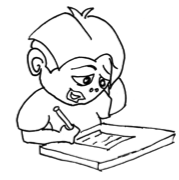 James at age 6 was:
Therapy Professionals Ltd's Therapists helped by:
 The therapist helped the teacher and family understand the causes of James’s difficulties. They assisted them to slowly put the strategies into place. These strategies made a significant difference to James’s ability to concentrate and attend to tasks. His learning improved at school and at home. Interactions with his peers improved significantly too. Are you experiencing anything like this?
If so, Therapy Professionals team of experienced Physio, Speech Language, Music and Occupational Therapists and Dietitians can help. Why choose us to help?
Investing in a child now, can save heartache in the future. We can help. You don’t need to struggle alone, we can help. Just contact Therapy Professionals on Phone: 03 3775280 Email: [email protected] Visit our website: http://www.therapyprofessionals.co.nz Some Exercises for Strength and Balance If you want to reduce your risk of falling it’s important to increase your leg strength and balance. Below are some exercises, which if done regularly, will improve your leg strength and balance and reduce your risk of falls. The following are exercises for the lower part of the body – to improve your coordination, balance, mobility and strength. You will be working your buttocks, abdominals, thighs, knees, ankles and feet. 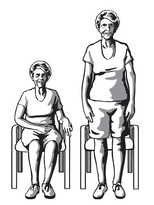 Sit to Stand To work buttocks, abdominals, thighs, knees, ankles and feet. Repeat 10 times in succession. Use as little hand support as possible. 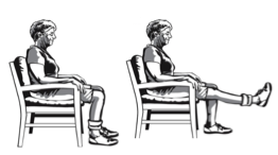 Sit Foot Raise To work thighs. A weight around the ankle increases muscle work. Hold for 10 seconds. Repeat up to 20 times in succession. 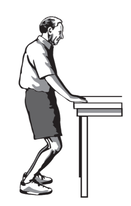 Knee Bends To work buttocks and thighs. Hold table at first then progress to no hand support. Hold for 5 seconds. Repeat 10 times in succession. 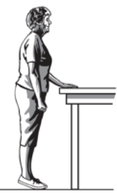 Stand on toes To work calf muscles and ankle joints. Hold table at first then progress to no hand support. Then walk on toes - forward and backwards. Hold 3 seconds. Repeat 10 times. 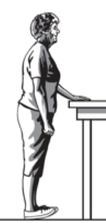 Stand on heels To work shin muscles and ankle joints Hold table at first then progress to no hand support. Then walk on heels – forward and backwards Hold 2 - 3 seconds. Repeat 10 times. 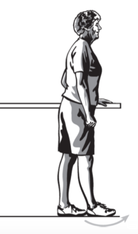 Heel toe stand and walk To increase balance. Place one foot in front of other heel to toe. Hold table or wall at first then progress to no hand support. Then walk in a straight line – heel to toe for 10 steps. Walk:
Walk Walk Walk!! If you need help to improve your leg strength and balance our friendly
Physiotherapists can help, just contact us, Phone: 377 5280 Email: [email protected] Acknowledgement: NZ Falls Prevention Research team, University of Otago Medical School |
AuthorShonagh O'Hagan Archives
July 2024
|

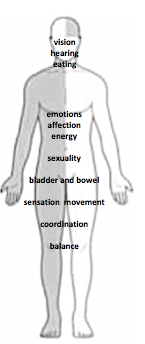

 RSS Feed
RSS Feed